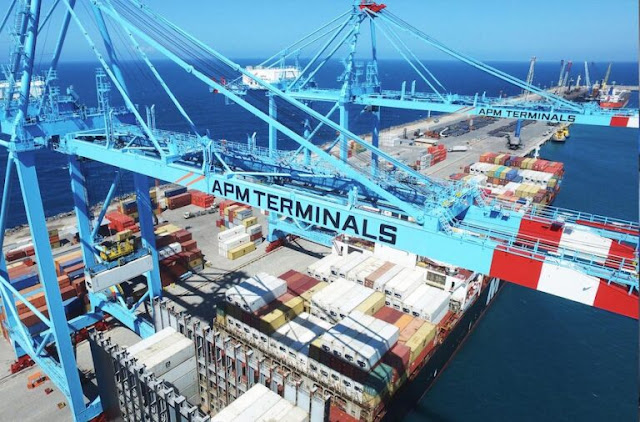Nigeria’s largest container terminal, APM Terminals Apapa, has reaffirmed its determination to channel more investment into physical infrastructure, forge stronger strategic partnerships, and expand digital solutions in order to deliver faster, more transparent, and customer-centred services at the port.
Chief Executive Officer of APM Terminals Nigeria, Frederik Klinke, gave the assurance during the company’s Partners’ Engagement Forum in Lagos, an annual gathering that brings together stakeholders across the supply chain, including port operators, government agencies, shipping lines, importers, exporters, and freight forwarders.
Klinke pledged that the terminal would intensify collaboration across the maritime sector to enhance operational efficiency, speed up cargo clearance, and strengthen Nigeria’s trade competitiveness. He thanked customers for their loyalty and continued business despite persistent disruptions in the global supply chain.
He observed that many of the challenges, ranging from congestion and delays to fluctuating freight costs, are not peculiar to Nigeria, yet require a well-coordinated local response to keep the country’s ports competitive. Restating APM Terminals’ long-term commitment to the Nigerian market, he promised sustained investments in infrastructure, partnerships, and advanced technology to improve service delivery.
Terminal Manager, Steen Knudsen, underscored the importance of close cooperation with stakeholders in building a more efficient port ecosystem. He encouraged customers to keep providing feedback, describing such engagement as vital for identifying bottlenecks and driving practical solutions.
Knudsen cited recent milestones, including the launch of thrice-weekly rail freight services between Apapa and Moniya, which have eased pressure on the roads and improved turnaround times. Other upgrades include the expansion of the terminal’s examination yard, enhanced container scanning and inspection systems, increased investment in barge operations to move cargo by water, and the development of dedicated export packages to accelerate clearance for Nigerian exporters.
He maintained that progress in these areas can only be sustained if all actors across the logistics chain work in close alignment. Knudsen also pointed to the expansion of APM Terminals Apapa’s online customer portal, which now enables clients to initiate transactions, track cargo, and access real-time updates remotely.
In his remarks, APM Terminals Apapa Commercial Manager, Kayode Daniel, spoke about the central role of customers in shaping the company’s direction. He said the terminal sees its clients as partners in growth and innovation, noting that every achievement is a reflection of shared trust and vision. Daniel assured stakeholders that the company would continue to deploy advanced technology, streamline processes, and implement improvements that make business easier and more rewarding in Nigeria’s evolving trade landscape.
A panel session titled “Terminal Progress and Future Outlook”, moderated by the Chief Finance Officer of APM Terminals Nigeria, Courage Obadagbonyi, examined how technology can transform port efficiency. Participants discussed how automation, digital platforms, and data-sharing could help reduce delays and simplify transactions.
Government agencies at the event also outlined measures being taken to support faster cargo clearance. Manager of Lagos Port Complex Apapa, Lawal Adebowale, disclosed that the Nigerian Ports Authority is deepening channels to receive larger vessels, upgrading berth facilities, and improving pilot training to meet modern shipping demands.
Director of Port Inspection at the National Agency for Food and Drug Administration and Control (NAFDAC), Olaniran Olakunle, explained that the agency’s automated product administration and monitoring platform now provides an end-to-end online process for registering and clearing drugs, food items, and medical devices, significantly cutting manual delays.
Comptroller of Apapa Area Command of the Nigeria Customs Service, Babatunde Olomu, represented by Assistant Comptroller Abubakar Usman, stressed that faster clearance can only be achieved when importers and agents fully comply with documentation and regulatory obligations.
Director of Regulatory Services at the Nigerian Shippers’ Council, Margaret Ogbonna, called for more frequent inter-agency meetings to harmonise procedures and prevent duplication of effort, stressing that coordinated action is vital to aligning port operations with Nigeria’s broader trade strategy.
The forum closed with the presentation of awards to distinguished customers in recognition of their role in advancing trade facilitation and operational excellence. Participants described the event as timely, noting that collaborative initiatives of this nature could help Nigeria unlock greater economic opportunities and strengthen its competitiveness within West Africa.






